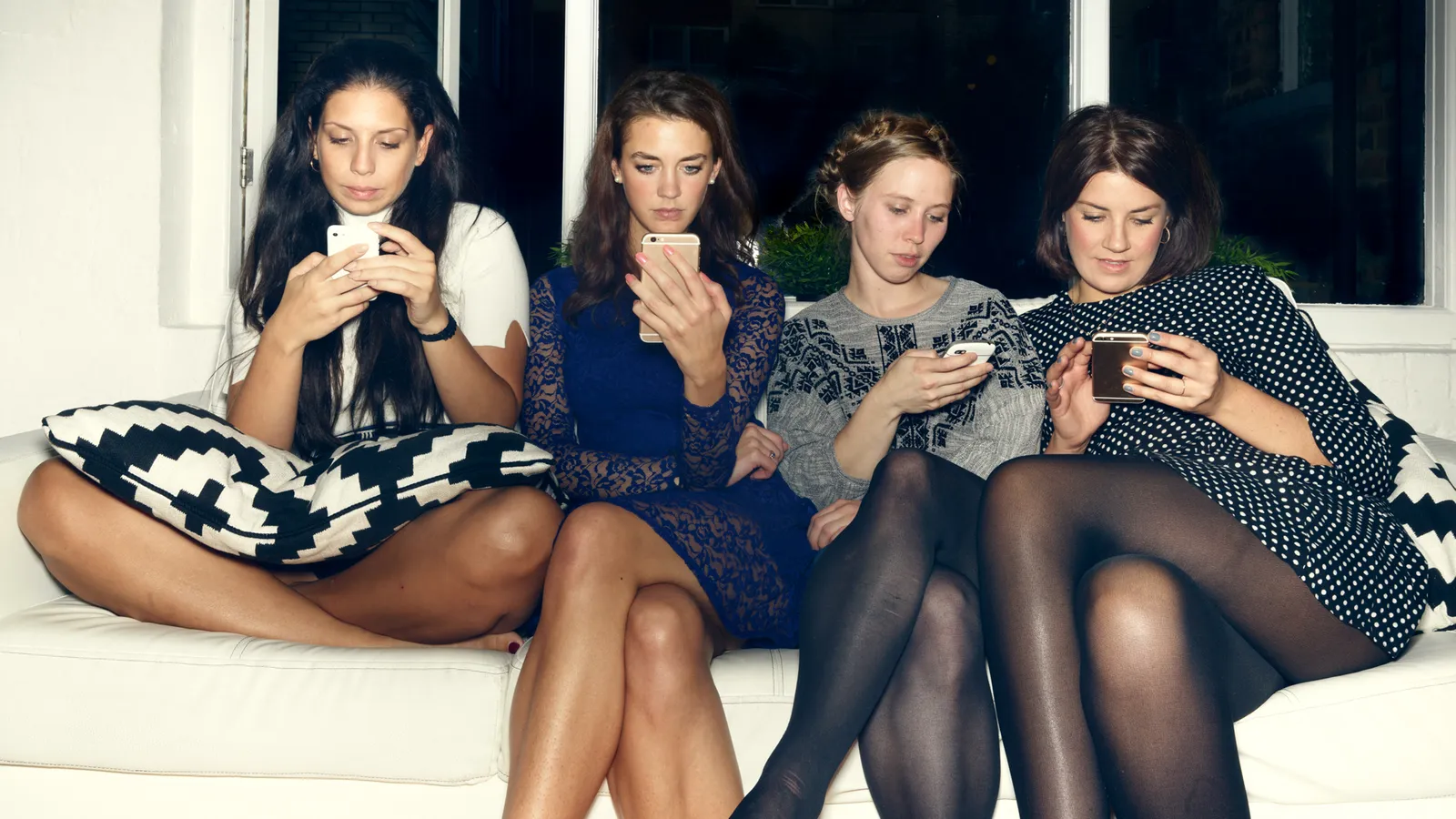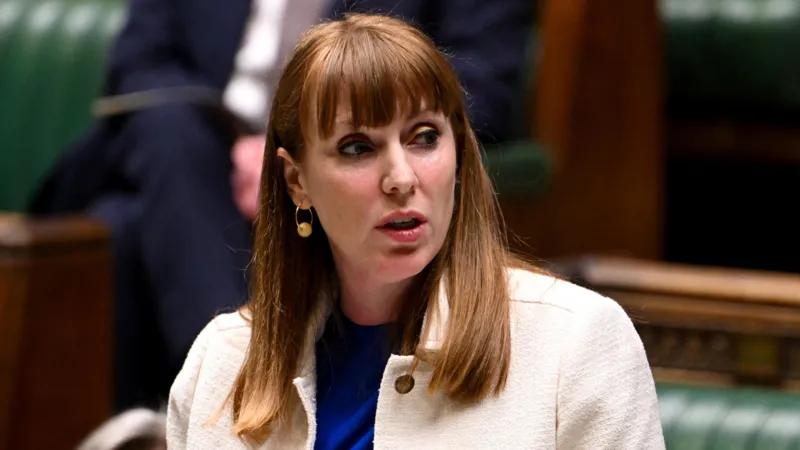Why you rarely believe celebrity apologies on social media
On social media, posts of contrition from public figures are endless. They usually flop.

At a recent concert in the European country of Georgia, rock band The Killers found themselves in the middle of a decades-long political conflict. On 16 Aug, lead singer Brandon Flowers invited a Russian audience member on stage and asked the crowd to treat the fan as a "brother". The request was met with immediate boos and even walkouts; the backlash continued after the show.
The next day, the musicians issued a swift social media apology via X, formerly known as Twitter. They wrote, in part: "We recognise that a comment, meant to suggest that all of The Killers' audience and fans are 'brothers and sisters', could be misconstrued. We did not mean to upset anyone and apologise."
That social media apology came the same week Tiffany Gomas apologised on Instagram for delaying an American Airlines flight; and members of the cast of the reality show Below Deck: Down Under apologised on their individual social accounts for an incident of sexual harassment that took place while filming the current season.
In a social media-centric world, apologies have become compulsory; increasingly, audiences are demanding responses from celebrities and CEOs alike to address a range of missteps, such as mass layoffs, extra-marital affairs, the use of racist or hateful language or even criminal activity.
It's a change from the world of sterile press releases from publicity reps. Instead, public figures now use social media to convey their contrition. They intend these apologies to meet their audiences where they are – be it Instagram, YouTube, TikTok, X or even LinkedIn – with the hope the platforms will help to mimic the good faith of a face-to-face mea culpa.
Yet some experts say this practice has changed our relationship to apologies: both how to give them and how to receive them. This shift isn't always positive, and often renders these displays of remorse ineffective.
'Sorry' goes social
"The era of everything being filtered through PR is over," says Marjorie Ingall, co-author with Susan McCarthy of Sorry, Sorry, Sorry: The Case for Good Apologies. She has been tracking public apologies on her website SorryWatch since 2012. Now, she says, it's extremely common to use social media to apologise, because it's "the great leveller".
Ingall says these platforms enable public figures to respond to broad audiences, while also evoking a feeling of intimacy with their fan bases. The medium also allows the apologiser to act quickly, often without any large-scale interventions from a corporate public relations team when the news cycle moves at light speed.
Karina Schumann, an associate professor in social psychology at the University of Pittsburgh, US, feels social media has helped to create an environment of accountability – if only because it has created so much awareness of what public figures are saying and doing all the time. This is "in large part because everything about peoples' lives is so public", she explains. "Because of that, I think there's less of a formal procedure around these apologies, and they've become almost like an everyday thing."
Schumann says public figures have moved their "sorry" to social media because winning back a fan base is often the fastest and most strategic way to save their reputations. "They're putting it out there to the public through this mechanism as a way to try to win favour back with the public and redeem themselves," she says. "And because they want it to seem personal, social media feels like a fitting or appropriate medium for communicating."
Social media apologies have become so common, in fact, that Schumann has set up an "apology filter" for her email. "Every single day there's something coming in about some celebrity or politician or public figure who's messed up and has apologised, refused to apologise or has issued, more often than not, a terrible apology," she says.
The 'Age of Apology'
Beyond enabling public figures to respond swiftly to a built-in network of followers, social media apologies also tap into the easy shareability traditional media outlets lack. Yet Schumann believes this ease of distribution has also created an expectation that celebrity apologies are the default – even a new part of the social contract.
Schumann explains that even 20 years ago, apologies in the public sphere were seldom. "They've become really normative and frequent and expected. It wasn't as common of a thing to see corporations putting out apologies for various scandals or private matters that come out," she says. "For the last few decades, we've been in what some scholars call 'the 'Age of Apology'."
As apologies have evolved into a kind of tacit agreement between public figures and the public, Schumann argues they've actually become less effective, even if they're served directly to fans on social platforms.
"There are factors that work against these apologies being seen as sincere. When they were very formalised and on these more scripted public stages, I think they were generally met with a lot of scepticism, because they were seen as insincere and coming in response to public pressure to apologise," she says. "I don't think that the social media apology is changing that. The public knows that these celebrities and CEOs are apologising to their fans, but they're apologising to their sponsors, they're apologising to their stakeholders."
This becomes a kind of apology overload, with one post after another increasingly devaluing the act of apologising at all, a concept known as "normative dilution".
The intimate nature of social media may work against celebrities in some cases, believes pop culture critic Zarinah, who uses her first name professionally. She writes the Weekly Work newsletter and runs the popular TikTok account CultureWork, which both analyse viral pop culture moments.
Because public figures use social media as a strategic way to build their brands, they struggle to "cross into that sphere of access and authenticity that audiences and fans expect, especially on an app like TikTok", she says. So, although it may seem like they are interacting with fans on a personal level, Zarinah believes these moves are careful marketing. When they have to make amends, the effect can come off as calculated or meticulously curated.
"Even though someone may post 15 times a week, and you may feel like you know Lizzo or feel like you know Bethenny Frankel, you're still part of their performance," she says. Celebrities cultivate parasocial relationships with fans – nonreciprocal relationships, in which the fan believes they know the creator personally – but tend to have difficulty making an apology seem authentic, says Zarinah.
"Whenever the moment comes for an apology," she explains, "[fans] learn that the relationship they thought they were building with a celebrity over social … isn't real at all."
Apologies and 'acknowlogies'
As ineffective as experts say stilted press releases are, they also agree ubiquitous social media apologies may not be much better – if at all.
First, the sheer volume of apologies based on audiences' growing expectations for them can render them ineffective; public figures are generally set up for failure, no matter what they say, believes Schumann. Words of remorse have become so normative that public figures won't really gain anything from the posts, she says. Yet people who don't apologise will lose even more, since audiences note the absence of an apology as much as they demand one.
With the influx of public apologies, people have grown more sceptical – and more attuned to notes of artifice, says Zarinah. In her pop culture coverage, she analyses how effective a public figure's statement is. She deducts points when they do what she calls "an acknowlogy", in which the person essentially acknowledges a misstep exits and they played a role in it, but don't ever actually say "I'm sorry" to anyone they may have harmed.
Ingall has a similar grading system: "bad apology bingo cards". That's where she notes carefully composed phrases meant to avoid any admission of guilt, or ones that overuse has largely rendered meaningless. She points to examples such as, "I am a father of daughters" and "I was young then and things were very different in my day".
Still, social media apologies may not be entirely pointless. Ingall believes these posts of contrition can serve as a teaching tool – she says it's important to realise that, despite the apology fatigue, some words are genuine. "I don't want us to have apology fatigue, because this is something that's so important to human relationships."
In fact, amid the slew of the past week's apologies, one stands out to Ingall: the statement from Below Deck: Down Under's Captain Jason Chambers. Her son brought the post to Ingall's attention.
"[Chambers] did it the right way," she says. "The statement came from him personally. He took on responsibility as the captain, and most importantly, he issued a full-throated explanation for why sexual harassment and unwanted sexual advances are never acceptable. My son and I were able to parse 'Why is this good? Why is it rare?' The fact that it was public made it even more powerful."
-bbc






